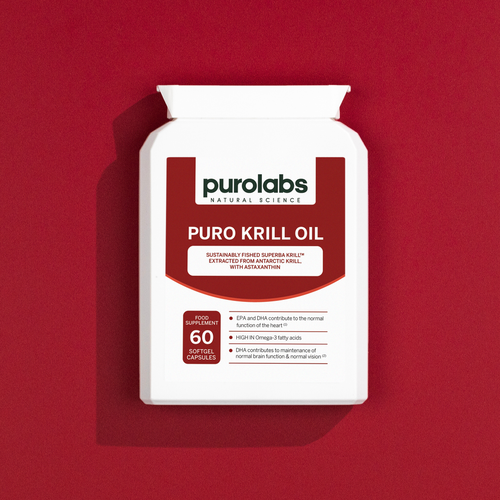If you have ever been baffled by a bottle of fish oil pills while snooping through a medicine cabinet, it is time for you to learn about the importance of omega-3 fatty acids. Omega-3 fatty acids are essential building blocks for almost every part of our bodies. These fatty acids make up our cell membranes and have vital roles in the functions of our eyes, hearts, brains, lungs, and immune systems. First, let’s break down the “3” in Omega-3s.
Omega-3 fatty acids are comprised of three major players:
- Alpha-linolenic acid (ALA)
- Eicosapentaenoic acid (EPA), and
- Docosahexaenoic acid (DHA)
Your body cannot produce its own ALA, so you need to get adequate amounts of it from your diet. ALA is mostly found in plant products and is used for converting your food into energy and absorbing its nutrients. In turn, your body can only turn small amounts of ALA into EPA and further down the line DHA, so you also need to be getting enough of those fatty acids from your food as well. EPA and DHA are most commonly found in animal products and algae. These two essential fatty acids play a part in almost all of our bodily functions. Now that we have a better grasp of what omega-3 fatty acids are, let’s explore why they are vital to our health and wellness.
Benefits of Omega-3 Fatty Acids
Omega-3 fatty acids have been exhaustively studied – and for good reason! The benefits of omega-3 fatty acids stretch from the top of your head to the tips of your toes and everything in between. Some of the top benefits include:
- Reducing Inflammation: Both EPA and DHA fight inflammation. Some inflammation in our bodies is good. For example, inflammation can trigger our immune system to attack foreign germs. However, long-term inflammation can have devastating effects including heart disease, cancers, diabetes, and rheumatoid arthritis.
- Improvements in Mental Health: Just as they can help our physical health, omega-3s can also affect our mental health. A study out of Swallownest Court Hospital in Sheffield, UK explored the relationship between omega-3s and mental health issues. Results showed a connection between patients with low levels of omega-3s and depression and schizophrenic tendencies. Other clinical trials have cited improvements when patients experiencing borderline personality disorder and attention-deficit hyperactivity increased their intake of omega-3 fatty acids. Many mental health issues such as depression, anxiety, mood swings, and schizophrenia can be attributed in part to inflammation in the brain. When that inflammation is reduced, so are many symptoms of mental health issues.
- Promoting Heart Health: Omega-3 fatty acids are also excellent for your heart health. Omega-3s have been shown to lower bad cholesterol, blood pressure, and triglycerides while simultaneously preventing plaque build-up in arteries. In a meta-analysis performed by Harvard University, participants who took a daily omega-3 fatty acid supplement had reduced rates of coronary heart disease as well as coronary incidents such as strokes and heart attacks.
- Supporting Baby & Infant Development: It is especially important for newborns and pregnant women to be getting an adequate level of omega-3s. Additionally, multiple studies have shown that a mother increasing their intake of omega-3 fatty acids during pregnancy results in the child developing better eyesight, higher intelligence, and better communication skills. Additionally, the extra omega-3 fatty acids are shown to reduce inflammation in the central nervous system that can cause autism spectrum disorder, cerebral palsy, and attention deficit hyperactivity disorder.
- Supporting Bone and Joint Health: Introducing more omega-3 fatty acids into your body allows your body to absorb more fat-soluble nutrients such as calcium, iron, selenium, vitamin A, and vitamin K. These are also the nutrients responsible for building and maintaining strong bones and joints.
- Promoting Healthy Skin: Finally, we all want youthful, glowing skin. Our skin and cell membranes are heavily comprised of DHA. Additionally, EPA keeps our skin hydrated and prevents early ageing and acne.
Top Sources of Omega-3s
As we discussed, we need to secure enough omega-3 fatty acids from our diet to reap all of its benefits. However, many of us are not eating a balanced diet to support it. Fortunately, there are readily available sources of omega-3s we can incorporate into our daily diets as well. Some of the best sources of omega-3s include:
- Fish: Fish is an excellent source of EPA and DHA. You should specifically seek out oily, cold-water fish such as salmon, mackerel, tuna, and sardines. The National Health Service (NHS) recommends two servings of fish per week for optimum heart health.
- Nuts and Seeds: Nuts and seeds are a bountiful and vegetarian source of ALA. Consider adding pumpkin seeds, walnuts, and chia seeds to your grocery list.
- Plant Oils: Plant oils, specifically soybean, canola, and flaxseed oil, are full of ALA and can be quickly swapped into homemade salad dressing and other recipes.
- Green, leafy vegetables: Dark, cruciferous vegetables such as broccoli and sprouts are widely available and versatile sources of ALA.
- Fortified foods: Many countries recognise the importance of omega-3 fatty acids for the health of their citizens. Therefore, many governments fortify foods such as eggs, yoghurt, juice, and cereals with omega-3 fatty acids to ensure the population is meeting their daily requirements.
-
Supplements: Even the best-planned diets fall through sometimes. Including an omega-3 fatty acids supplement in your routine can fill in any nutritional gaps an insufficient diet may leave behind. HeartUK suggests finding an omega-3 supplement that utilises fish oil such as as our very own Puro Omega 3 Antarctic Krill Oil or our vegetarian-friendly option Puro Vegan Omega-3. Finding the right supplement can help you harness the powerful perks of omega-3 fatty acids.

Antarctic Krill Oil
Rated 4.7 out of 5 stars23 ReviewsObtain a rich, pure source of high-quality Omega-3s, sustainably obtained from the pristine, unpolluted waters of the Antarctic ocean.Learn More

 Beauty
Beauty
 Bone Health
Bone Health
 Brain Health
Brain Health
 Energy
Energy
 Eye Health
Eye Health
 Gut Health
Gut Health
 Hair
Hair
 Hormonal Health
Hormonal Health
 Heart Health
Heart Health
 Immunity
Immunity
 Joints
Joints
 Menopause
Menopause
 Pregnancy
Pregnancy
 Kids
Kids
 Sleep
Sleep
 Stress & Mood
Stress & Mood





















